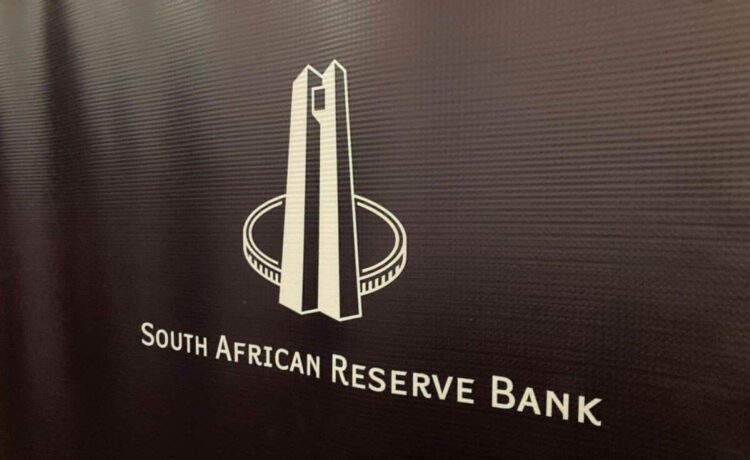Foreign exchange dealers must all make sure that they comply with Fica to ensure criminals do not use them to launder money or fund terrorism.
The South African Reserve Bank (Sarb) fined a forex dealer R162 500 recently for Fica violations because important provisions were not part of its Risk Management and Compliance Programme document.
According to a statement from the Reserve Bank, it imposed administrative sanctions on Access Forex, an Authorised Dealer in foreign exchange with Limited Authority (ADLA), based in Zimbabwe.
The company deals with moving money from Zimbabwe, the UK and South Africa.
Authorised dealers in foreign exchange, such as commercial banks and ADLAs are authorised by the Sarb to deal in foreign exchange transactions and are regulated accordingly. ADLAs include bureaux de change and are authorised to deal only in certain limited, designated foreign exchange transactions, including travel-related transactions.
ALSO READ: The actual cost of non-compliance with Fica
What is the aim of Fica?
The Financial Intelligence Centre Act (Fica) mandates the Sarb to ensure that ADLAs have adequate controls in place to combat acts of money laundering and the financing of terrorism.
The aim of Fica is to establish a Financial Intelligence Centre to combat money laundering activities and the financing of terrorism and related activities and to impose certain duties on institutions and other people who might be used for money laundering purposes or the financing of terrorist and related activities.
In addition, Fica provides for customer due diligence measures regarding beneficial ownership and people in prominent positions and a risk-based approach to client identification and verification. Fica also makes provision for fining companies that do not comply with Fica.
ALSO READ: The risks of doing business with politically exposed persons
Applicable sections of Fica
Sections 42(1) and (2) of Fica provides that accountable institutions are required to develop, document, maintain and implement a Risk Management and Compliance Programme (RMCP) to identify, assess and mitigate money laundering and terrorist financing risks.
Section 20A provides that an accountable institution is not allowed to establish a business relationship or conclude a single transaction with an anonymous client or a client with an apparent false or fictitious name.
Section 43 provides that an accountable institution must provide ongoing training to its employees to enable them to comply with the provisions of Fica and the Risk Management and Compliance Programme applicable to them.
Due to these responsibilities, the Sarb inspects ADLAs to assess whether they have appropriate measures in place, as required by Fica.
ALSO READ: Prudential authority fines Absa R10 million for FICA non-compliance
Why was Access Forex fined?
The Sarb points out that the administrative sanctions were imposed due to certain weaknesses that were detected in the ADLA’s control measures that inhibited it as well as failure to reflect important provisions of Fica in its Risk Management and Compliance Programme document, verify and identify some of its customers and provide adequate training to its staff members.
Therefore, the Sarb imposed these administrative sanctions:
- a financial penalty of R100 000 for failure to comply with the provisions of section 42 (1) of Fica
- a financial penalty of R37 500, for failure to comply with the provisions of section 20 and
- a financial penalty of R25 000 for failure to comply with the provisions of section 43.
ALSO READ: FSCA fines Sanlam Collective Investments R10.6 million for not complying with Fica
FSCA also fined Sanlam Collective Investments for Fica non-compliance
The Financial Sector Conduct Authority (FSCA), recently fined Sanlam Collective Investments R10.6 million for not complying with Fica and instructed it to address the identified contraventions. The company was also cautioned against future breaches.
At the time of the inspection, the FSCA found Sanlam did not adequately identify or verify some clients and their beneficial owners and also did not conduct the required ongoing and enhanced due diligence.
Fica and South Africa’s greylisting
Fica compliance is important if South Africa wants to be removed from the grey list of the Financial Action Task Force (FATF). South Africa was greylisted in February 2023.
The FATF is an intergovernmental body established to protect financial systems and the broader economy from threats of money laundering and the financing of terrorism.
Greylisting subjects the financial services sector to increased scrutiny and stricter regulations to ensure that it addresses the deficiencies in its anti-money laundering and counterterrorism financing systems.
South Africa is hoping to be removed from the grey list as it is meeting most of the requirements. The FATF is having its plenary this month where decisions are taken to remove countries from the gryelist or add them to it.
NOW READ: South Africa well on its way to get off FATF grey list





